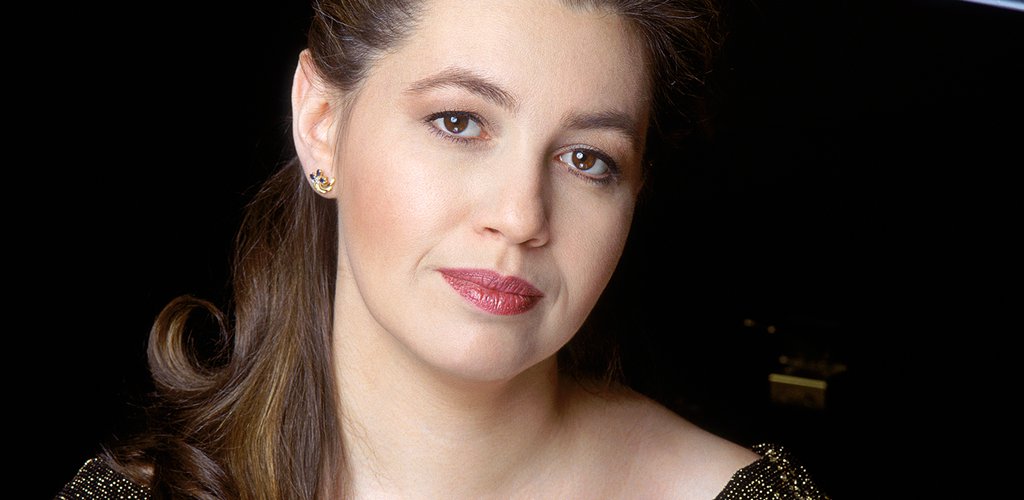You played many times with Dimitrij Kitajenko, you know each other very well. How do you prepare for playing with the maestro again?
Lilya Zilberstein: First of all, Kitajenko is a great conductor in my personal opinion, but I am sure that many people agree on this. He has always been very cooperative with me, we played really many times together. We have a very good contact. The first time we met and made music together was back in 1988. We played in Russia – at that time the Soviet Union, - but in the same year we played in Italy as well with the Soviet Philharmonics. I remember well, I was pretty young at the time and very much at the beginning of my career, and I exactly know that we played Rachmaninoff. And since then we played really many times together. I think the last common concert was last year in Bonn. I really appreciate our connection.
All the three of you, the composer Rachmaninoff, the conductor Dimitrij Kitajenko and yourself as well have emigrated from Russia. All the three of you were socialized far from your home. Does this mean that there is something common which combines the three of you?
L.Z.: Maybe, I was never thinking about it. But you are right, we have the same background, all the three of us were born in the same country and we all left it. Ok, I agree with you, this might be an important fact. However, Rachmaninoff had a different situation, because when he left Russia after the Russian Revolution, he knew that he would never go back. Kitajenko and me we know that we can go back to our homeland, if we want. Just in the last time Russian authorities decided to give a so called “gift citizenship” to those who want to turn back to their home country.
Do you think about going back to Moscow?
L.Z.: Of course, I go back many times. I am a member of a competition jury for young people each year, and I am also invited to some nice concerts as a soloist.
I wanted to ask you about planning to move back to Russia.
L.Z.: No, not at all. I am now a European citizen and feel good to live in the place where I am.
On the big stages of the world where you are playing time to time, there are always many high level, worldwide well-known Russian musicians. Why do you think there are probably more talented Russians playing music than others? (If it’s true)
L.Z.: Yes, I think it is true. The explanation for this is that we in Russia get really fantastic education in music. The school where I started, a state-owned music school was a world level place for learning music, and there were many others on the same level. I don’t think that in other countries there are schools for music with that high standards.
What did the good education mean? What did you get in Russia, what other kids in other countries don’t?
L.Z.: See, I have lived for 25 years in Germany, near Hamburg, I have two children – now they are in their twenties –, but when they were around five years old I was looking for a good music education for them. I had to realize that there was no such a type of school that I attended back in Moscow. The studies we made in our music school gave us a complex knowledge. In the same school we learned theory, harmony, forms of music, music literature from all over the world. The teachers themselves were great musicians at the same time. So I really could learn everything what one has to know to enjoy making music. And I still feel that I put into my interpretations everything I learned in school. So now, that I teach here in Vienna, I try to explain that to my students. Of course, my experience was only about Germany. I don’t know how it functioned in the Eastern countries, like e.g. in Hungary, but in Germany that was the case. Here in Austria I have the impression that students who come to our school miss a lot of knowledge which we have to give them to be able to learn to play music. As far as I learned, East Germany – (DDR at that time) had rather good music schools.
In Hungary I think the situation was different, because of the Kodály music education system which became worldwide accepted and therefore Hungary is – in my opinion – an exception. But let’s speak about the piece of Rachmaninoff you are going to play in Budapest soon.
You know, I have played all five Rachmaninoff-concertos as well as the cello sonata, and some beautiful solo pieces. So I can say I really feel very close to the composer. This piece the Rhapsody on the Theme of Paganini is a set of 24 variations on the twenty-fourth and last of Paganini's Caprices for solo violin. And there comes the Dies Irae. You know the “Day of Wrath” from the medieval Mass of the Dead. This is the Paganini theme. Among the variations there are some very different ones and therefore it is really interesting. It is by the way not a typical concerto of Rachmaninoff because of those short variations. You will hear that.
